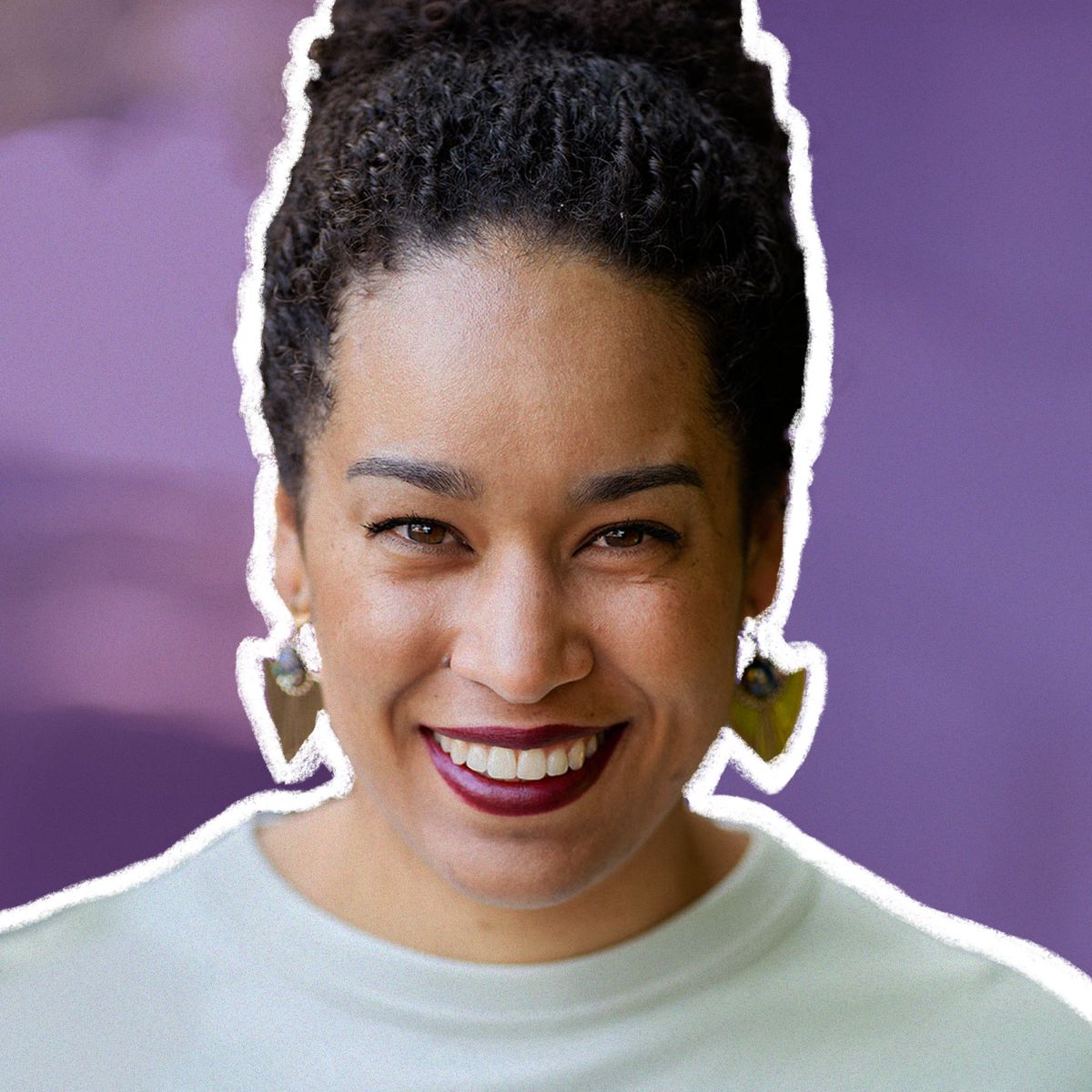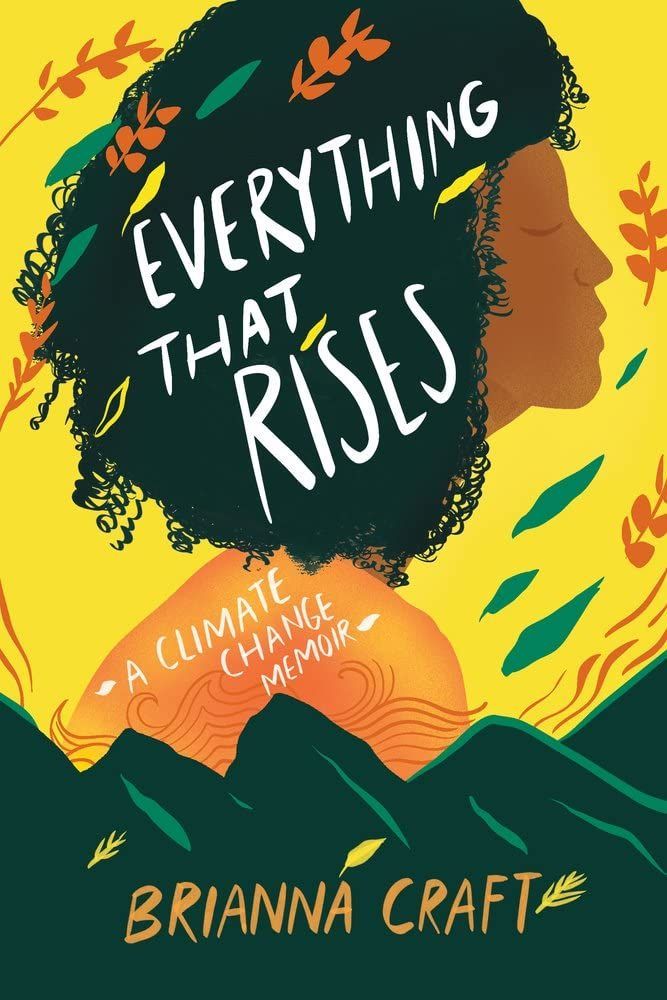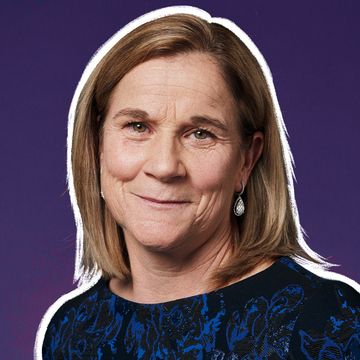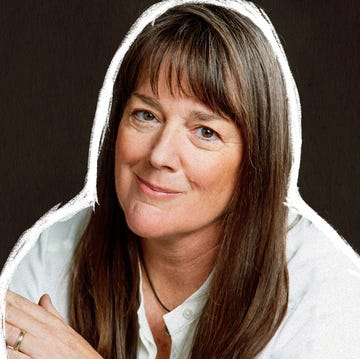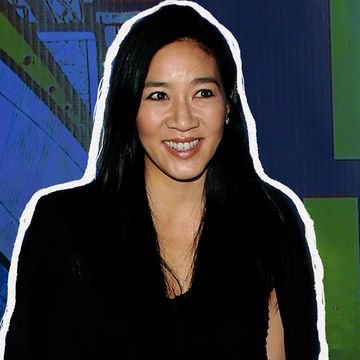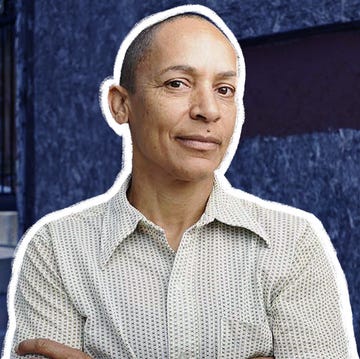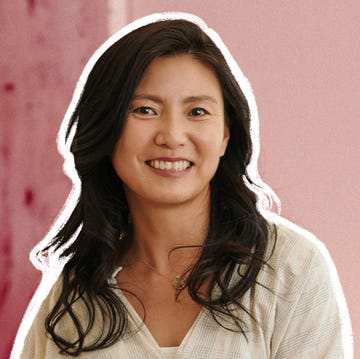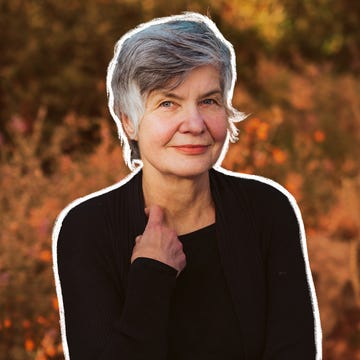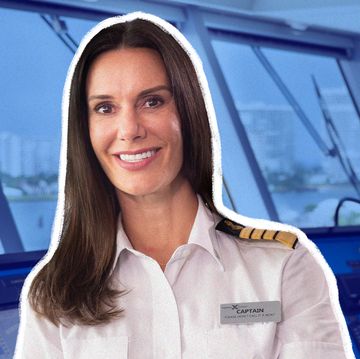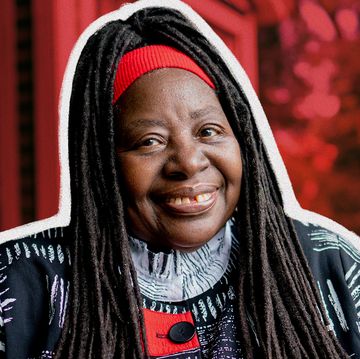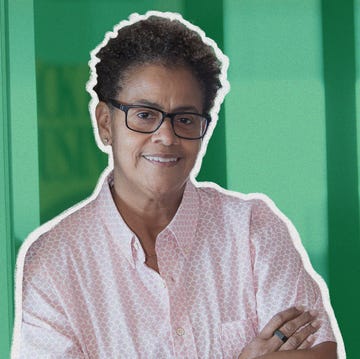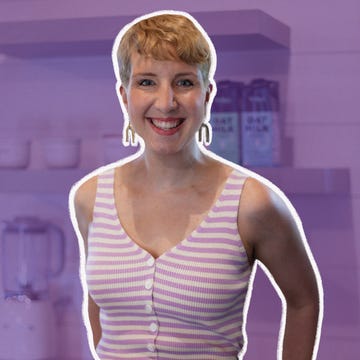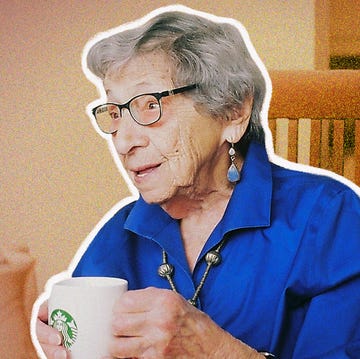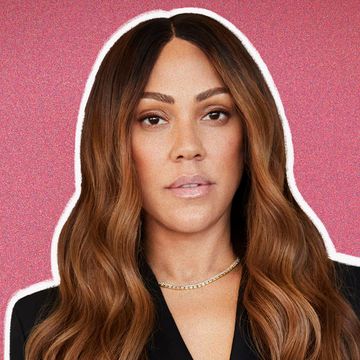In the ongoing Shondaland series Head Turners, we meet interesting women from every facet of life who are crushing it in their careers. From artists and tech mavens to titans of the boardroom, these women are breaking barriers, and they’ll share how you can too.
Brianna Craft was a freshman sitting in Introduction to Environmental Studies at the University of Washington in 2005, listening to her professor describe climate change, flipping through photos of scenes of its impact, from empty California basins to flooded Midwestern towns to aerial views of Hurricane Katrina. The images hit her so hard that she literally had a panic attack.
Craft, a pre-architecture major “dead set on building houses" for the rest of her life, took the class thinking it would be an easy way to complete her science requirement. She didn’t realize it would change her life’s trajectory, setting her on a path to earn her master’s degree in the subject at Brown University, work with the team who negotiated the United Nations climate treaty in 2015, and write her new book, Everything That Rises: A Climate Change Memoir.
Shondaland recently spoke with the senior researcher at the International Institute for Environment and Development about what it was like to participate in the United Nations climate negotiations, how she learned to stand up for herself, and why climate change is like an abusive relationship.
HOPE REESE: How did you turn your interest in climate change into a career?
BRIANNA CRAFT: I’m still figuring that out. At school, I tried to understand more of it, but I quickly ran out of university-level classes about climate change. That drove me to apply for a travel fellowship at the University of Washington, basically to get to see how climate change was impacting people around the world and what people did about it.
I spent a year wandering around the planet meeting people who study climate change, were impacted by climate change, and how it shaped their activism or their farming or their engineering, and how that shaped their futures. It gave me the revelation that this is what I wanted to do too, but it still didn’t clarify a firm path for me.
When I graduated, I did the AmeriCorps program and spent some time in an environmental NGO, teaching kids about the climate crisis on the habitat restoration of Seattle urban areas. I worked with community groups and climate co-ops thinking about how neighborhoods could get more access to renewable energy or better transportation.
I realized that I needed more time [and] school to figure this out and enrolled in a graduate program on environmental study. Eventually, I got to do climate change research, but it was a long and often unclear road.
HR: In your book, you describe yourself as being “really good at school.” What advice do you have for people who aren’t?
BC: I am very nerdy, very dedicated to school, but what enabled me to shift out of that path was a deep curiosity and a willingness to take risks. The program at Brown was great. It introduced students to what environment studies can mean, and what I latched onto most was the international process making climate decisions. The environmental field is full of so many options and so many unanswered questions.
What people need to dig into it is this sense of curiosity and that willingness to step out there and push for change that we’ve not had before. I don’t think you have to be top of your class to do that. It’s the willingness to put yourself out there.
HR: How did you overcome feeling like an outsider at the United Nations?
BC: For someone starting there as a student when I was 24, it was completely overwhelming. I don’t think my experience is dissimilar from a lot of people who are sent there by their own countries or people who go to represent, like activists or a research group. The climate change negotiations are very complex and can be intimidating spaces. Usually, there’s 30,000 people there, and it takes place over three weeks. There are people with a lot of political power [and] money. The goal is essentially to make international decisions about climate change.
My first several times, I felt so out of my depth. I didn’t even have a degree in environmental studies. What the heck was I doing in climate negotiations? I was working to support elites in other countries, particularly Gambia. I am not a Gambian. I’m an American and felt really out of place despite their very warm welcome. Making connections with others helped me.
Learning to find my own voice and role in the negotiations took some time. I came with so much desire to drive change and shape change quickly because I felt this sense of urgency. The climate crisis is the greatest crisis we face. We need solutions now, but the U.N. system is very slow, so my sense of urgency quickly turned to frustration. I think that feeling is shared by a lot of people in a lot of places.
I had to understand what the process was capable of and what it wasn’t — and what I wanted to do with that. That involved finding my own voice, telling stories that illuminated the urgency of the crisis in a different way.
HR: You also describe sexual harassment in those meetings in your book. How did you handle that?
BC: I was a 24-year-old graduate student, and I showed up at the U.N. Climate Change Conference not knowing anyone. It’s heavily women who work in climate change. But of course, much of the power in political spaces is held by men. I was sexually harassed by several members I was working to support, as well as some of the people in the conference.
I felt so isolated. I didn’t know anyone, and I didn’t know how things work. What do you do if some guy keeps calling you? What do we do if some guy is blocking your way to get to a meeting, trying to chat you up? I found it completely overwhelming. I had come to help make progress, not to be hit on over and over again. I think that is a really common feeling for young women.
What helped me through in the end was talking to other women about what was happening and getting some support. I would have definitely done that sooner. Now, in large part thanks to #MeToo and other things, there’s clear guidance on how people are to treat each other in international climate negotiations.
HR: Can you explain how you saw a link between growing up with an abusive parent and addressing climate change?
BC: My father was violent, and I grew up pretty terrified of him. We were in the same house until I was 18. As I learned more about the climate crisis and entered spaces where power is involved in deciding what we do about it, I was overwhelmed by how many parallels I saw between the house I grew up in and the world’s collective governance of climate change.
Living with the climate crisis reminded me of living with my dad: how you’re stressed out all the time — constant tension and anxiety — and how violence is inevitable. It really is a matter of time. People are gonna die.
The U.N. climate negotiations are full of people who are responsible at very different degrees for the climate crisis. For example, the countries I supported emit less than 1 percent of global emissions. But when I watched them push for international decisions, it reminded me of growing up in a space where the people in power were going to continue to do things to hurt those who are least responsible. They were going to undervalue their lives. They were going to make decisions that fully benefited them. And it’s not safe.
Hope Reese is a freelance journalist who has contributed to The New York Times, Vox, and The Atlantic. Follow her on Twitter @hope_reese.
Get Shondaland directly in your inbox: SUBSCRIBE TODAY
